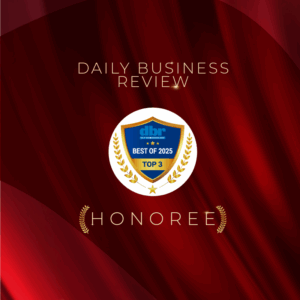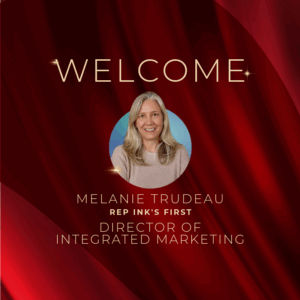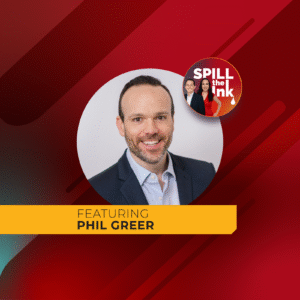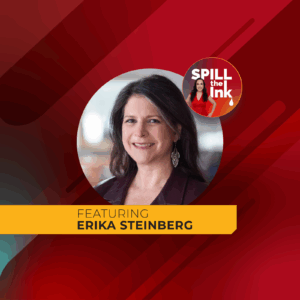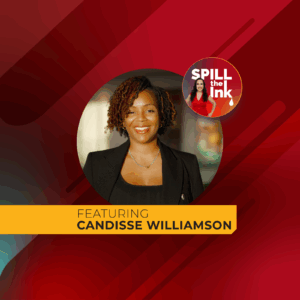
Spill the Ink: The Reputation Ink Podcast
How to Get Attorneys to Buy In on Legal Marketing Plans
Good marketing ideas alone won’t get attorneys to follow through. In this “Spill the Ink” episode, Michelle Calcote King talks to Sheenika Gandhi, Chief Marketing Officer at Greenberg Glusker, who reveals her proven strategies for transforming attorney resistance into marketing commitment.
Sheenika started her career wanting to be a lawyer, went to law school and took the bar exam before discovering legal marketing. Her law school credentials encourage attorneys to listen to her openly, as she gets their world and speaks their language. Bringing her unique perspective to the table, Sheenika shares her systematic approach to overcoming common resistance points with attorneys involved in marketing-related tasks. Through monthly coaching calls and carefully crafted marketing plans, she’s built a framework that balances billable hour pressures with business development goals while advocating successfully for additional resources by tracking data and demonstrating measurable value.
Here’s a Glimpse of What You’ll Learn
- Why attorneys resist marketing and how to address their biggest fears.
- The steps to building internal credibility that gets attorneys excited to work with you.
- How Sheenika Gandhi structures her monthly coaching calls for optimal results.
- Tactics for working around billable hour pressures without compromising client work.
- Strategies to make marketing feel effortless for busy lawyers.
- How to collaborate while protecting your marketing team from becoming the firm catch-all.
- Key data to track when advocating for marketing resources.
About Our Featured Guest
Sheenika S. Gandhi is the Chief Marketing Officer at Greenberg Glusker. She leads the firm’s marketing and business development strategy, lateral partner recruiting and corporate social responsibility initiatives.
She serves as a trusted advisor to the firm and works seamlessly alongside the rest of the C-Suite to view the firm holistically, using this unique vantage point to pinpoint growth areas. She oversees a high-performing team responsible for sponsorships, events, communications, public relations, rankings and recognition, digital marketing, marketing technology, business development and client service.
Sheenika maintains a strong network and vigilantly monitors trends and breakthroughs in legal marketing. In 2024, she joined the International Board of Directors for the Legal Marketing Association (LMA), the preeminent organization for legal marketing professionals, after previously serving as the Co-Chair of the Small Firm / Solo Team Shared Interest Group (SIG). She was a member of the LMA’s 2021 Annual Conference Advisory Committee and previously served as the Chair of the Southern California Chapter of LMA.
She is a sought-after voice on marketing and leadership trends. She regularly speaks at conferences for organizations, including the LMA, California Lawyers Association and LegalWeek, and authors articles on strategy, professional development and diversity, equity and inclusion (DEI). She has also appeared as a guest on numerous podcasts, often describing her career journey and lessons learned.
Resources Mentioned in This Episode
- Check out Greenberg Glusker
- Follow Greenberg Glusker on LinkedIn
- Connect with Sheenika Gandhi on LinkedIn
- Say hello to Michelle Calcote King on LinkedIn
Sponsor For This Episode
This episode is brought to you by Reputation Ink.
Founded by Michelle Calcote King, Reputation Ink is a marketing and public relations agency that serves B2B professional services firms of all shapes and sizes across the United States, including corporate law firms and architecture, engineering and construction (AEC) firms.
Reputation Ink understands how sophisticated corporate buyers find and select professional services firms. For more than a decade, they have helped firms grow through thought leadership-fueled strategies, including public relations, content marketing, video marketing, social media, podcasting, marketing strategy services, creative services and more.
To learn more, visit www.rep-ink.com or email them at [email protected] today.
Transcript
Disclaimer: What you’re reading is an AI-transcribed version of our podcast. It may contain mistakes, including spelling and grammar errors.
[00:00:00] Sheenika Gandhi: How do you make the process easier for them? That’s really what they need help with and we’re a partner with them through this process. We’re not just order takers. We’re here as a strategic value add and to brainstorm ideas. I want to hear what they have to say, but I have ideas too, and how do we collaborate on them.
[00:00:23] Announcer: Welcome to Spill the Ink, a podcast by Reputation Ink where we feature experts in growth and brand visibility for law firms and architecture, engineering and construction firms. Now let’s get started with the show.
[00:00:39] Michelle Calcote King: Hi everyone. I’m Michelle Calcote King. I’m your host and I’m also the principal and president of Reputation Ink. We’re a public relations and thought leadership marketing agency for B2B professional services firms, including law firms. To learn more, go to www.rep-ink.com.
Getting attorneys to follow through on marketing activities requires more than just good ideas.
It demands a tailored approach that creates momentum and excitement for each individual attorney, and that’s our focus today. We’re going to talk about how legal marketers can set up both themselves and their attorneys to commit and follow through on law firm marketing and everything that that entails.
So I’m joined by Sheenika Gandhi. She’s the Chief Marketing Officer at Greenberg Glusker. She leads the firm’s marketing and business development strategy, lateral partner recruiting and corporate social responsibility initiatives. And she also currently serves on the LMA, Legal Marketing Association International Board of Directors.
So thanks for joining me.
[00:01:45] Sheenika Gandhi: Thank you for having me, Michelle. This is exciting.
[00:01:48] Michelle Calcote King: Yeah, I’m excited to talk to you too. And I didn’t know you were on the International Board of Directors until I just read that, so very excited. I’m on the Southeast board, so I’ve been involved in LMA for many, many years and it’s a great organization.
So I did a little bit of an intro too, but I’d love for you to tell our audience a little bit about you and your career and the firm that you’re with.
[00:02:09] Sheenika Gandhi: Yeah. Happy to. I started my journey thinking I wanted to be a lawyer, which isn’t a typical start to being in legal marketing.
And so after I graduated and I took the bar, I came upon a business development coordinator role at an intellectual property law firm in Orange County in California. The main job description was to launch a new website and to maintain that website moving forward. So the role was really interesting to me because it combined my interests.
I was able to put my law firm hat on, or the lawyer hat just having experience going to law school, but also I had an undergrad degree in business and I really loved my marketing classes. And then technology too. I had an interest in tech and social media and all of that. So for me it was a combination of those three pieces that really stood out to me in this role.
And frankly also at the same time, I was trying to see if I could be a lawyer too. So I used it as a way to get in the door at a law firm thinking maybe I could transition into a lawyer position eventually. But turns out I ended up loving the role and I was also introduced to the Legal Marketing Association. And that confirmed to me that there was a career path I could follow and one day become CMO. And those dreams ended up coming true at Greenberg Glusker about 11 years later. So I’ve been at Greenberg Glusker for six years and was promoted to CMO about a little over two years ago.
Greenberg Glusker is a single office firm in Los Angeles. However, our clients are global, so we’ve been known in the industry as a top-notch entertainment firm, but we are full service. We serve the needs of businesses, organizations, individuals, families, and the firm has been around for 65 years.
[00:04:06] Michelle Calcote King: That’s fantastic. And tell me how that legal education, how does it inform your approach now?
[00:04:14] Sheenika Gandhi: Yeah, I think when I thought about this in preparation, it was really about the ability to think on my feet. I think in law school, they call on you, right? The Socratic method. You have to quickly be able to repeat a case and its holding and I think that ability to think on my feet, stay composed under pressure, quickly adapt, make decisions when things are constantly shifting, which, let’s be honest, is always happening in law firms. So I’m able to analyze the situation quickly.
I can understand the audience. I’m always crafting a persuasive argument almost to convince the attorneys, convince the firm to engage in a new marketing idea. And I really use those skills to tailor my conversations with the eventual decision makers, and really it gave me a thick skin and the tolerance to handle difficult situations.
Law school is really difficult and three years of just working really hard gave me that resilience to be able to feel like I can handle anything. And then of course, passing the bar gave me that validation too. So whether it’s navigating a hard conversation with an attorney or juggling so many last minute requests or things with tight deadlines, I’ve just learned to keep cool and get to the heart of the issue. And that resilience, I think, has been the main aspect.
[00:05:42] Michelle Calcote King: Yeah, I can definitely see that. And I would also think it gives you a bit of credibility with them as well that you can understand their world a bit more and you can speak their language. So yeah, I can imagine that helps.
[00:05:56] Sheenika Gandhi: It has been helpful. Even just reviewing content or blog posts or articles, things with more substance, getting up to speed on a new practice area. I feel like that has come a little bit easier because I have that foundational skills from law school.
[00:06:12] Michelle Calcote King: Yeah, absolutely.
So what are some of those – so I started out by talking about how we were going to talk about how to help attorneys beyond those resistance that they have to marketing activities. What are some of the common resistance points that you find from attorneys when it comes to getting them to follow through on the plans that they’ve set and those activities that really build the business?
[00:06:39] Sheenika Gandhi: Yeah, in law school, they don’t teach marketing, business development, and client service. So I feel that common resistant points that I see are around fear of doing or saying the wrong thing that might upset the client or alienate a prospective client, or often just not knowing where to start.
I think there’s so much you could do with marketing and business development and what’s right for them and what will make them feel comfortable, I think is a common resistant point. So where I spend a lot of time is coaching our attorneys on how to start somewhere small and rooted around the idea that you’re providing value to your clients.
You’re not there to sell and have that sleazy salesperson view, but more that you have expertise and that you can provide value to your clients. And that’s really where you can stand out. So I always focus on accomplishing small tasks because that also leads to feeling rewarded and almost leads to this snowball effect.
So they see these small wins and that leads to more opportunities. And then they get excited and they want to do more. And that’s how I see them overcome some of those barriers.
[00:08:00] Michelle Calcote King: Yeah, I can imagine. So you kind of dove into it a little bit about how you do that, but tell me about how your coaching calls are structured to help them, to help move them forward.
[00:08:14] Sheenika Gandhi: Yeah, so I have my coaching program with about 30 of our partners at the firm, and I meet with them on a frequency that makes sense for them. So whether it’s monthly or quarterly, it’s 30 minutes and it’s a chance for us to discuss what are the upcoming activities that are in your world that maybe there’s an upcoming conference, maybe there is a new client that you’re trying to target, how do we create a strategy and an action plan to move that forward? So that’s if the attorney already has a lot on their plate and they’re just looking for some accountability, using me as a way to brainstorm ideas.
But often if I’m just starting with a partner who doesn’t know – maybe they’ve just been practicing and they’ve just made partner and now they’re ready to focus on business development – that’s when I start by identifying their goals. Of course. So what do they want to be known for? Who is the audience that they’re targeting? And who are their ideal clients? Who are their current, or what kind of work they have worked on in the past? And I think every attorney needs to go through that process, whether it’s the firm having a set process, which at our firm we have every attorney fill out a marketing plan and just go through those steps just to get a little bit centered. And so then I use those plans. I know a lot of these plans end up sitting on a shelf often, but I use those plans during these coaching calls to remind them, hey, where are we on this idea that you had or you really wanted to attend this conference? Is it on your radar and how can we help prep you to best leverage it? So it’s a lot about just that back and forth conversation and getting them to build momentum on some of these activities they’re interested in.
[00:10:04] Michelle Calcote King: Yeah. And it’s really smart to have every single one of them fill out a marketing plan and think through those critical aspects. Who are you targeting? What kind of business do you want to get? That kind of thing. Because it’s wild how many people don’t go through that process. What about, how do you help them overcome the intense billable hours requirements with the marketing? How have you helped attorneys balance those competing pressures?
[00:10:32] Sheenika Gandhi: Yeah, a couple of things. One, I always meet the attorneys where they’re at, so if they are on a deal or in trial, I definitely back away. I don’t push activities where I know that their billable time and the client comes first. So that is a really big thing for me where I really meet them where they’re at.
However, when they are in between trial, let’s say, or between closings, I definitely am in front of their face saying, hey, let’s focus on these things. And I emphasize quality over quantity. It’s not about like, how many things can I pump out, how many LinkedIn posts, or how many meetings can I have, but more so let’s look at your target list of who’s in your network and who can you prioritize this month to have at least three meetings with? And they don’t need to do everything. They just need to do the right things consistently. And I think that has gone a really long way. Even the small things just touching base with your top clients, I think that just helps to have them understand you could do some of these things in a bite-sized format, and it doesn’t have to be a huge project to take up all of this time. Just the little touch points along the way can go very far.
And I also spent a lot of time streamlining processes internally for the attorneys, for our team. And the whole point of our department is to help our attorneys be more efficient. So how do – can we ghost write emails for them? Can we have our PR agency help get an article 75% of the way, and they can just finish it off? How do we create a game plan for you going to a conference? Can we work on scheduling meetings? We’re asking all these questions and getting them to give us information so we can better help them.
And so we’re trying to make it as frictionless as possible, truly, so that they can do the work quickly.
[00:12:31] Michelle Calcote King: Yeah. I love that. I talk about that so often with my team that we need to make this as easy as possible for them. And I do really see that as one of the critical roles. They are your product that you’re selling and you have to make it easy for them.
How do you avoid that tendency or have you been able to avoid it, and do you have thoughts on how other marketers can handle this tendency? That happens a lot in firms where the marketing department kind of becomes this catchall department for all the random stuff that the partners don’t really know who to handle it, so it just gets given to the marketing department. What are your thoughts about that?
[00:13:20] Sheenika Gandhi: Yeah, this is a really hard question for me. I view our department and our firm as very collaborative, and I’m a big believer of supporting other functions within the firm. And we’re all here to support the firm’s growth, so we’re all in it together. But my team does get pulled into a lot of these different projects, whether it’s design projects or events for different firm initiatives. So thankfully our team does so with grace, but we also look whether it’s the appropriate group to handle something.
So sometimes design projects do make sense because we have the most experience with Canva, let’s say. And we have those capabilities. However, there’s opportunities where there’s other people at the firm that also have skillset. So I try to match what’s the request and the skillset needed.
So for example, we have an amazing PowerPoint designer in our production services department, and he helps us create and clean up all of the PowerPoint decks for speaking engagements. And so our team never has to touch that, which is great. So we push all of those requests like that to the department that makes the most sense.
And oftentimes we’re asked to do really administrative projects, so we’ll lean in on the assistants or the paralegals. And it’s this balance that I constantly have of being collaborative and getting, hey, this is a really important project. But also being protective of our team’s time into focusing on the goals and the more priority urgent things that are on our plate.
[00:14:50] Michelle Calcote King: Yeah. That’s a great point is to still be collaborative and to find the best resource allocation for the task. Have you been in a position where you’ve had to make the case for more resources and how have you done that and what are some ways that marketers can kind of better advocate for themselves for those resources?
[00:15:13] Sheenika Gandhi: Yeah, so I have been in that position a few times. I’ve actually heard of other CMOs. They track their time as a way to advocate for additional team members, and I actually did, I used that advice at my prior firm to show that I needed a full-time marketing coordinator on my team instead of she was part-time.
And so that was really helpful to be able to just track where are we spending our time and then being able to show I would like to do more of these things, but I need help to do that. And at this firm I was able to make a list of what’s not getting done. And that’s always enlightening of the things that I’ve not been able to get to.
And also show the volume of work that was being requested of our department. So in the last years of me being here I basically compared year over year the increase in some of the key categories that we help with at the firm. So whether it’s events and sponsorships, PR opportunities, pitches, any email marketing, anything that I could track and add data to. I was able to show the year over year increase, but the fact that our team was still the same size, and so that really helped. So I’ve been able to double my team essentially since I first started. I had two members of my team and now have four. And I think that’s been so strategic to be able to say, these are the things I can’t get done. This is the increase in volume. And this is not just me trying to build a team for no reason. They have a very specific job description. And they’re adding value to the firm in these ways.
And I’ve done that also by building a strong reputation for our department at the firm we produce quality work. It’s on getting it to them on time. We’re highlighting wins often in a weekly newsletter. I speak at partner meetings every month. And so it just comes down to sort of building that reputation and showing the value of the team.
[00:17:12] Michelle Calcote King: So many good points there. The fact that you’re tracking data and you’re giving them data and saying this is the volume. I love the what’s not getting done list. And then your final point about building a reputation internally for good work. Because I think the more good work you get, the more good work you do, the more you get given. So exactly what happens. So yeah. But giving them the data to support that is really smart.
So let’s go back to getting attorneys to improve their follow through. For marketers who are looking to implement similar approaches, what’s the most important takeaway that you would have for marketers struggling with that problem of how to get their attorneys to follow through and implement all those plans that they’re creating and that you’re helping them create?
[00:18:05] Sheenika Gandhi: Yeah, I really just try to keep it simple and personal to the attorney, so I feel like the biggest shift happens when we really get to know the attorneys on a professional and personal level and understand their goals. And something that you said earlier, just how do you make the process easier for them? That’s really what they need help with. And we’re a partner with them through this process. We’re not just order takers. We’re here as a strategic value add and to brainstorm ideas. I want to hear what they have to say and but I have ideas too, and how do we collaborate on them. I think that that has been a really important way of them understanding how to work with us and how we could improve that follow through.
And also a lot of the time I spend is that one clear next step. So every coaching meeting that I have, or every meeting, there’s always some action item that comes out. So then the hard part is making sure it gets done. So it’s whether it’s drafting that first email for them. So then they have something to look at and then we can work on it together, or repurposing something that they’ve already done. We really just try to make sure that we’re giving them a head start in all aspects.
[00:19:24] Michelle Calcote King: Yeah. I love that. It’s so true. You have this sort of big brainstorming meeting. You come out with a lot of ideas. The real magic is the actual follow through and making it happen. I talk to my team a lot about being easy to work with. You want to be strategic, you want to provide value, but at the end, you want the experience to be great so that they do work with you more. So it sounds like you’ve kind of really nailed that.
[00:19:47] Sheenika Gandhi: Yeah. And a positive mindset too. To come at it with I’m here and I’m energetic about this. I’m positive I am thrilled to help you. As opposed to oh, it’s just another thing that I have to do. That even that shift is a huge – like coming to the table, just having a really excitement tone is a big deal.
[00:20:10] Michelle Calcote King: Yeah, people want to work with people who are excited. Yeah, a hundred percent. I agree with that so much. So before we end the interview, I’d love to give you a chance to give our listeners one final thought.
[00:20:22] Sheenika Gandhi: Yeah, of course. I think if I had to speak to anyone new in their marketing career and legal marketing, I feel like this profession has a lot to offer. And I found that out because I was always curious and I was always open to learning from every experience and always raising my hand to take on new projects that were maybe stretch projects. And I feel like that has been a reason why I have succeeded the way I have in my career.
[00:20:51] Michelle Calcote King: That’s great. Well, we have been talking to Sheenika Gandhi with Greenberg Glusker, and thank you so much for joining us. It was a great conversation.
[00:21:00] Sheenika Gandhi: Thank you.[00:21:05] Announcer: Thanks for listening to Spill the Ink, a podcast by Reputation Ink. We’ll see you again next time and be sure to click subscribe to get future episodes.
Related Law Firm Content
Strengthening the Profile of a Florida-Based Full-Service Law Firm
Reputation Ink | Oct. 3, 2025
Elevating a National Litigation Firm’s Profile Through Strategic PR and Thought Leadership
Reputation Ink | Jun. 17, 2025
Crafting attorney bios that instill trust, build relationships and boost reputation
Reputation Ink | Apr. 22, 2025
Join the INKsights Email List
Get Exclusive Updates on Awards, Lists, Rankings, Editorial Opps and More.
Subscribe to our newsletter, INKsights, to receive insights (pun intended) on thought leadership, public relations, and marketing for B2B professional services firms sent straight to your inbox.
Available only to our email subscribers:
Once a month, you’ll receive the latest awards, rankings, lists and editorial opportunities in the legal or AEC industry (you choose which you’d like to receive).
In the off weeks, we send you our latest thinking on the marketing and PR issues facing those industries. You can opt out anytime (although we’ll bet our favorite coffee mug you’ll never want to leave).







